10 Foods that Cypriots prepare best
including Unique Cyprus Specialities
I am writing about my subjective opinion, but I think that many people will agree with this opinion.
1. Souvlaki (which you may know as kebab), is made all over Greece and Cyprus but what makes Cyprus Souvlaki special is the “Pita bread” in which it is served with. Generally the meat will be served inside the pita pouch together with tomato, onion, cucumber, sliced white cabbage and parsley, all sprinkled with a good amount of lemon juice. Another thing that makes Cyprus souvlaki extra special is that you can usually have it mixed – with seftalia.
2. Seftalia(seftalies in the plural) are a unique type of Cyprus sausage made from ground mincemeat – usually a mixture of beef and pork – and lots of herbs. The sausages are wrapped in caul from the intestines rather like a mini haggis instead of the usual sausage skins.
3. Tavas dishes. Slow-cooked dishes are popular all over the Eastern mediterranean countries. Some have clay pots designed specially for slow-cooking. In Morocco these have conical tops that resemble road repair cones. In Cyprus they have round clay pots in all sorts of sizes, with round lids. The meals prepared with them are called tavas dishes and are absolutely out of this world. Cinammon and cumin are two spices frequently used in the preparation of such dishes. There are regional variations such as Tavas Lefkaritikos with a high concentration of rice.
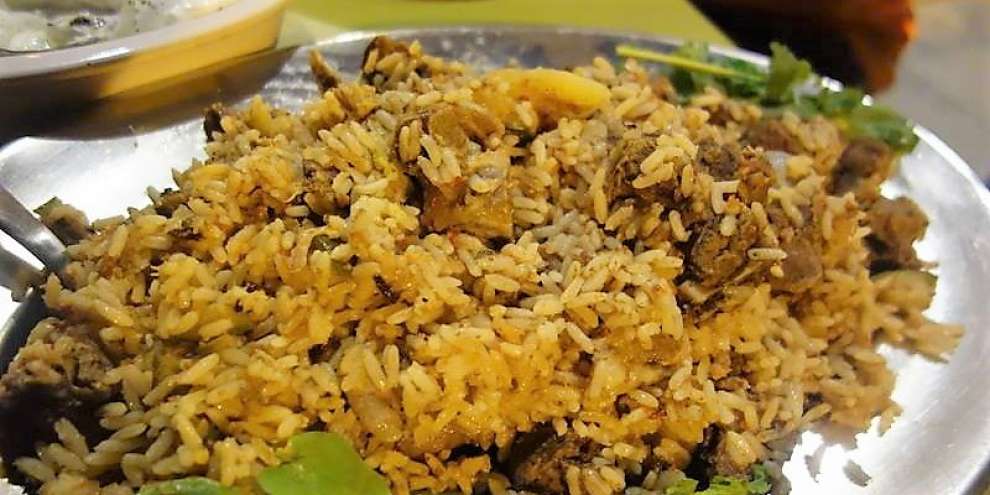
4. Koupes. These are a delicious Cyprus speciality. They are vaguely reminiscent of Cornish Pasties but without the pastry. In its place is a casing similar to that of a Scotch Egg. Well prepared ones can be exceptionally tasty. A sprinkling of lemon juice is recommended.
5. Flaounes are a type of cheese pie specially made at Easter time in Cyprus. In Greece cheese pies are called “tirropites” and are smaller as well as being made in a simpler way with filo pastry. Flaounes are usually made with a mixture of halloumi and anari cheeses, themselves a Cypriot speciality. Flaounes come in the “naughty but nice” category of foods. It is best not to eat too many if one is trying to lose weight.
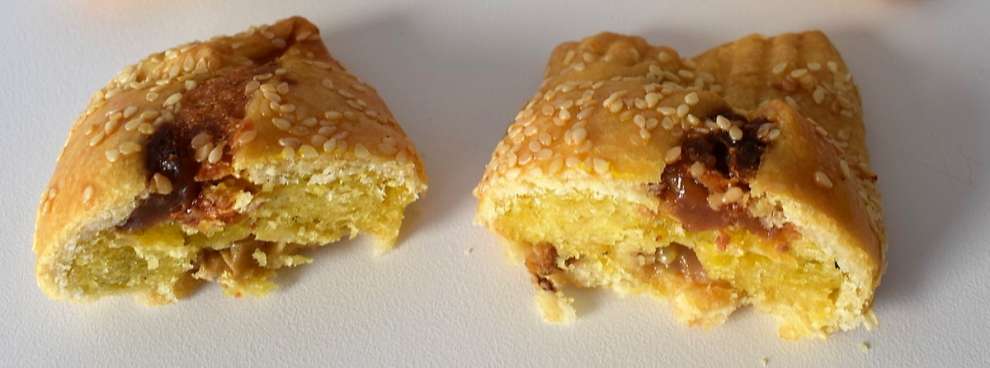
6. Halloumi, that famous Cyprus cheese, is usually served grilled or fried. Sometimes a refreshing snack lunch is made from grilled halloumi, water melon and pita bread, as shown in our header photograph. Anari is another Cyprus cheese made at the same time as halloumi.The halloumi comes from the curds and the anari from the whey.
7. Soutzoukos and Palouzes. These are Cyprus sweetmeats that are by-products of viniculture. In market stalls you will see long lengths of Soutzoukos hanging like decorations or lying side by side. Essentially they are made by heating a mix of grape juice and flour and some flavouring such as vanilla. In the case of Soutzoukos, beaded nuts are dunked in the mix while it is being heated. The same mix without the nuts yields Palouzes, a dessert resembling blancmange.
8. Trachanas. Versions of this are produced all over the Middle East. In Cyprus it is traditionally made by allowing goat’s milk to turn sour in earthenware vats. The milk is poured into a fresh vat every day for a week then it is boiled together with some wheat and then left to dry out. It is prepared in the summer and eaten as a soup in the winter. Here is how you prepare it.
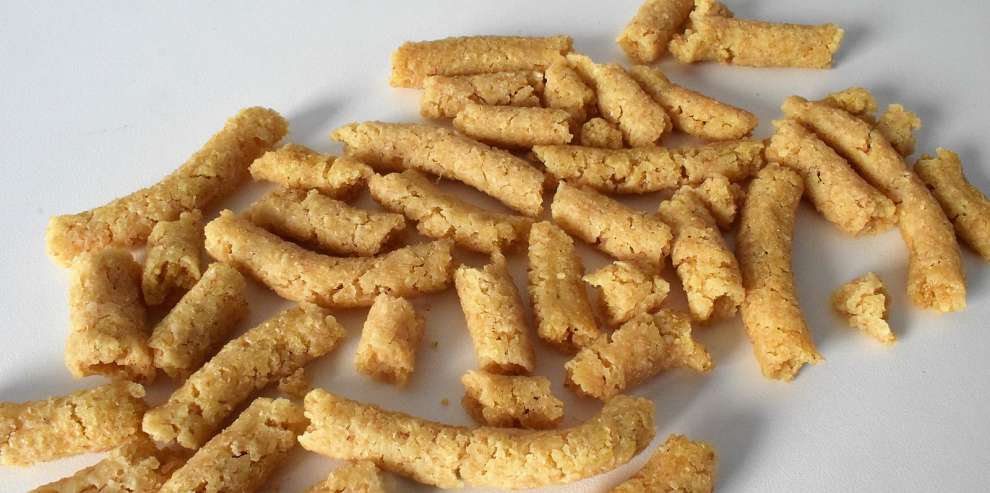
9. Koupepia, known in Greece as Dolmades. These are generally made with vine leaves or with cabbage leaves, but in Cyprus they also have a third way of preparing them and that is to stuff courgette flowers. You do sometimes find these in Greece also, particularly in Crete, an island with which Cyprus has historically had strong links. You will even notice a similar dialectical pronounciation.
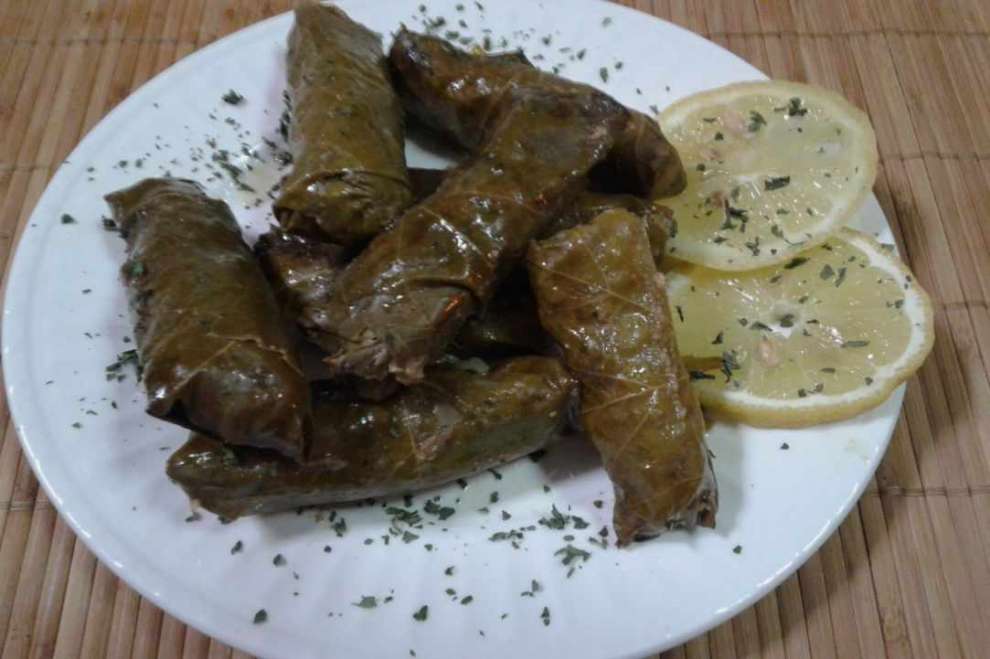
10. Kolokassi is a root vegetable unknown to most Britons, though there is an English name for it: Tarro root. It is often used instead of potatoes to make chips. Some people stew it with red wine and tomato sauce.
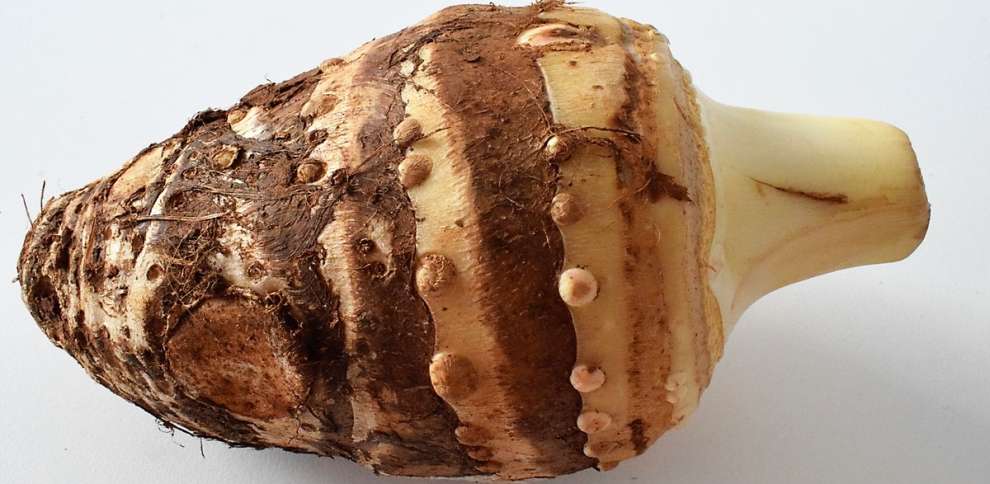
Throughout the Greek Diaspora, you will find local specialities. My Greek heritage is mainly from Smyrne and our Soutzoukakia Smyrneika have become popular all over Greece, but I think those of us with Smyrnan origins tend to have a certain feel for preparing them best.
In this article, I have described the 10 foods that I consider the Cypriots prepare best.

If you enjoyed my take on best Cyprus foods, you might like to read my article on best Cyprus Wines.

 English
English
 Ελληνικά
Ελληνικά Русский
Русский
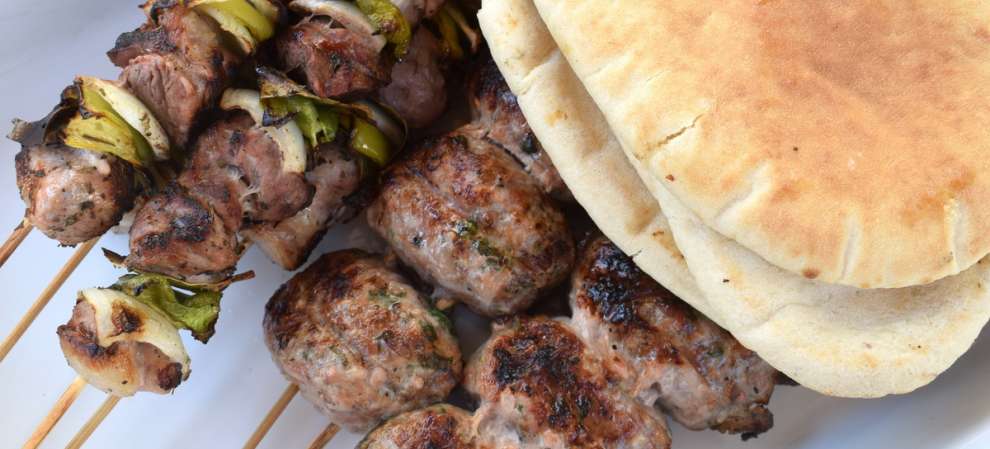

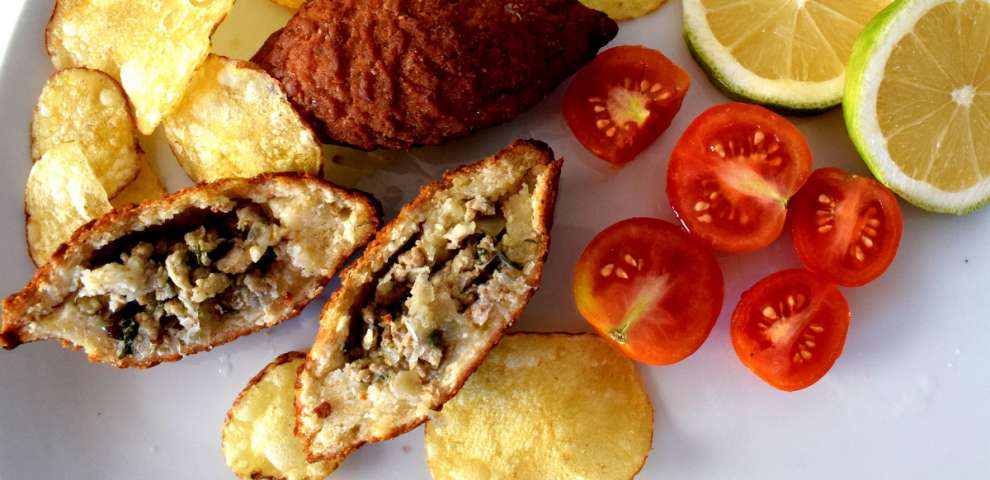
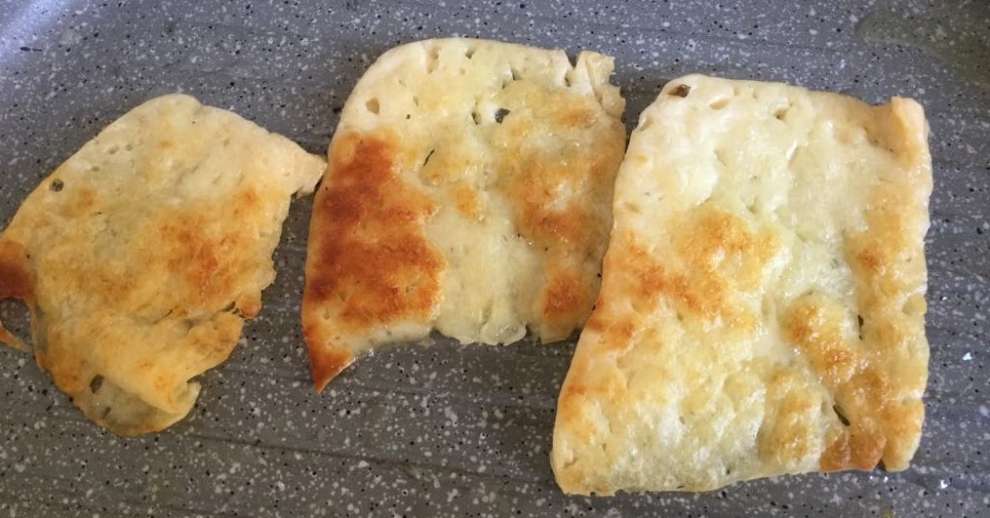
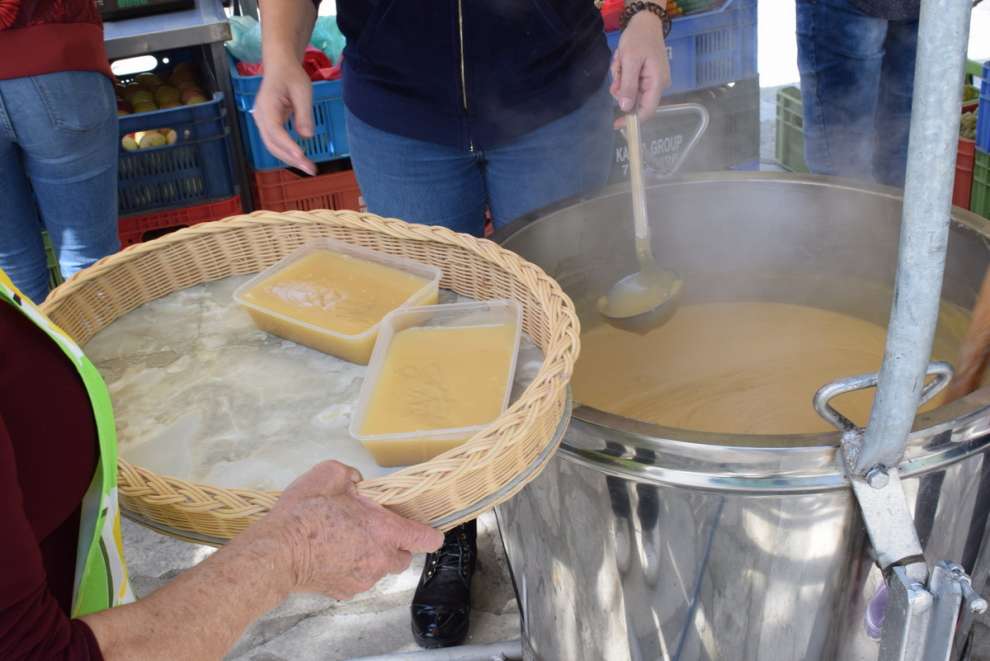
 Posted by
Bill Warry
Posted by
Bill Warry






